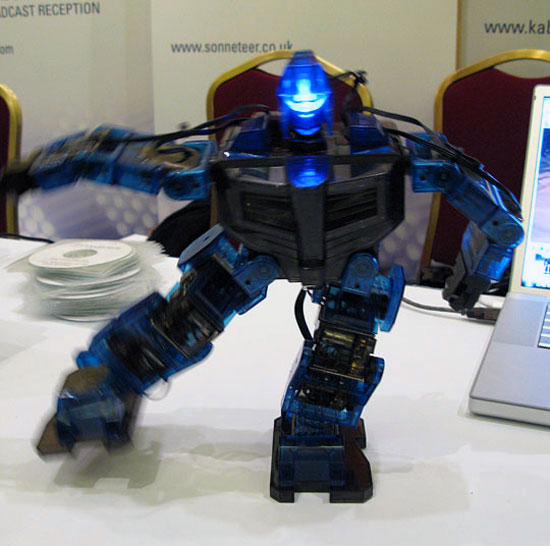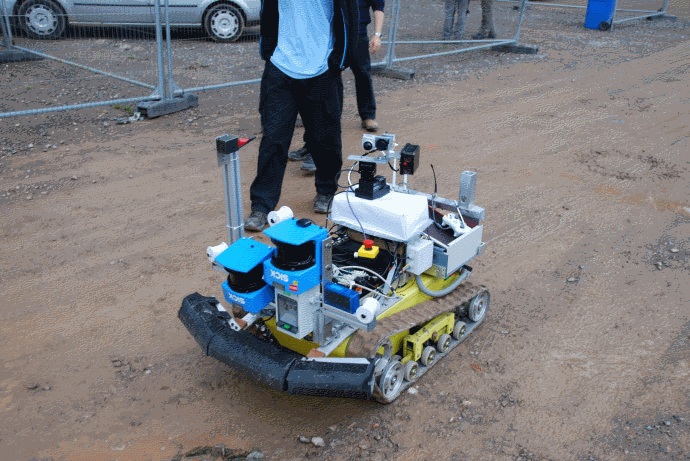Can a robot think like a person?
W.S.Harwin
24 September 2014
Stanley, Grand Challenge 2005
Beer bottle pass starts at 4.18
Beer bottle pass
Google car
Show to 1.23
Google car : Steve Mahan
One way robots think. Probability!
We will represent probabilities as the chance something might happen as P so
- P(I win the Lottery)=something very small. perhaps 1 in 100 million
- P(A coin I toss is heads)=roughly 50%, 50 times out of 100, 0.5
Of course winning the lottery has no effect on tossing a coin, but sometimes, events are linked....
Bayes Theorem
Bayes Theorem is \[ P(G|O)=\frac{P(O|G)P(G)}{P(O)} \] Gives the probability of event G given observation O based on prior information (all the terms on the right of the =)
- Bayes Theorem has been used in robotics, medicine, psychology, neuroscience, statistics, ...
Bayes Theorem example. Gender classification
If observation ($O$) is whether a person has a beard (B) and we wish to guess the gender ($G$) then
\[P(G=male\,\,|\,\, O=beard)=\frac{P(O=beard\,\,|\,\,G=male)P(G=male)}{P(O=beard)}\] \[P(G=female\,\,|\,\, O=beard)=\frac{P(O=beard\,\,|\,\,G=female)P(G=female)}{P(O=beard)}\]
A little short cut, $P(O=beard)=0.5\left(P(O=beard\,\,|\,\,G=female)+P(O=beard\,\,|\,\,G=male)\right)$
Bayes Theorem: Multiple observations example
If we make several observations then we can extend Bayes Theorem so
We want to determine the event `Gender=female', i.e. $G=F$
Let
- observation1 ($O_1$) give whether a person is wearing a dress (D)
- observation2 ($O_2$) say whether a person has long hair (L)
then \[ P(G=F\,|\, O_1=D\,\, \hbox{and}\,\, O_2 = L)\approx \frac{P(O_1=D\,\,|\,\,G=F)P(O_2=L\,|\,G=F)P(G=F)}{P(O_1=D)P(O_2=L)} \]
Why conditional probabilities are important
Through experience we as humans have learned a mechanism something like Bayesian priors to allow us to make gender judgements on
- wizards (such as Gandalf)
- cultural traditions (e.g. the Greek Evzones)
- drag persona such as Conchita Wurst
- cross dressers such as Grayson Perry
Is this how brains work and if so, should we make robots think like this?
Mini Golf Robot MEng 2013
Interaction with golf robot
Extra information
- The real reason for brains, TEDtalk by Daniel Wolpert, Cambridge University Engineering Department
- How does my brain work More TED talks
- Introductory Slides for first year robotics
Some Robots from the University of Reading
a) b)
b) c)
c)
d)

More Robots from UoR
a)
b)
 c)
c) 
Clearly:
Prediction in humans has a consequence, the abililty to ignore information not relevant to the prediction.
For an example, run this video.